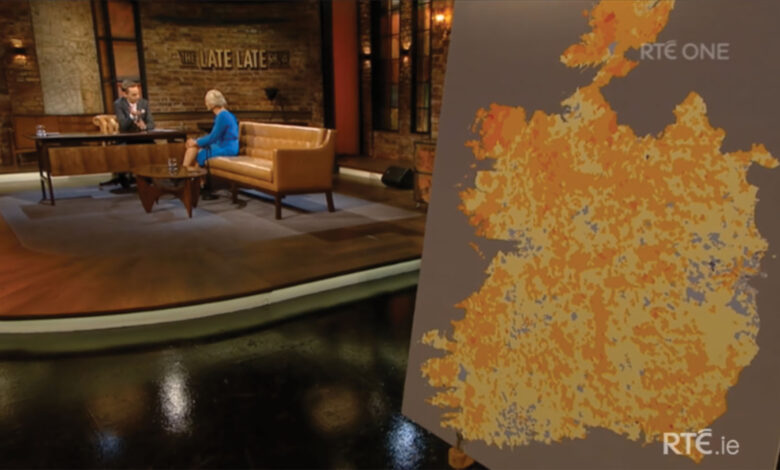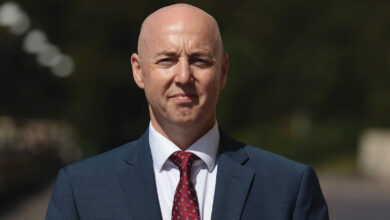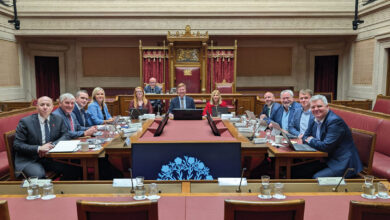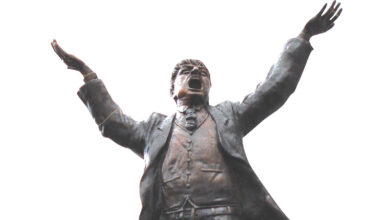Partitionism in Dublin media

There was once a time that Dublin newsrooms could not get enough of the good news stories from Northern Ireland. In the glow of the Good Friday Agreement, coverage of the burgeoning peace and stories on northern cultural, tourism, and business stories peppered the daily Dublin national newspapers, writes Eamon Quinn.
The Dublin media showed something of respect for their fellow citizens in the North. It was a brief period of ‘hug a nordie’, if you like.
In the North, political unionism 25 years ago kicked up a stink when Dublin-based media group, the Independent owned by Tony O’Reilly bought the then main political unionist newspaper, the Belfast Telegraph. O’Reilly was far from being a republican or even green Irish nationalist (he subsequently accepted an honour from the British state) and the hefty price paid for the Belfast title also helped the late businessman clinch the deal.
Back then, the two unionist papers did their thing, fighting to be the ‘national newspaper of Northern Ireland’, even as Northern Ireland and the world was moving on. BBC NI at the time provided only grudging coverage of most things Irish cultural or sporting – the insightful RTÉ Après Match sketch of the northern TV sports programme back in the day was a brilliant piece of satire. The TV weather map for long sharply defined by six-county outposts of Belleek, Newry, and Londonderry, continued to pander to northern unionism.
Fast forward to the current times. Many Belfast media outlets have accepted to some degree the changing nature of politics in the North. Radio and television current affairs programmes cackle with the debate about the timing of a border poll under the Good Friday Agreement. There is still some humour to be had at the expense of the Belfast newspaper outlet that earlier this year filed a story on the new pope under the category of ‘Republic of Ireland news’. But by and large much has changed for the better.
However, in the Republic, something odd has happened. An argument can be made that northern-based outlets provide a wider coverage of the Republic than the Dublin newsrooms provide of the 2 million and growing population in the North. The 26-county map showing Northern Ireland erased are now regular fixtures of Dublin newspapers. The infamous map of The Late Late Show with the northern counties blacked out is an apt metaphor for the Dublin newsrooms’ withdrawal coverage of the North.
When we talk about the Dublin media and coverage of the North, few realise that it is anchored on a very narrow base. Despite a rapidly growing population, the national broadcaster still has only two staffers in Belfast. The Irish Times has two staffers and the Irish Independent, the main southern outlet now owned by Belgium-based Mediahuis, has none. Virgin Media News is more likely to broadcast YouTube coverage of a Texan storm twister than cover a major political story up the road in Belfast. Twenty five years ago, Dublin papers had reporters filing business stories from Belfast. Such dedicated positions have also gone.
And remarkably little trickles into the Dublin newsrooms of the lively debate raging up north about the mainstay of the Good Friday Agreement – a border poll. Instead, regular columnists on the opinion pages appear hostile to the interests of fellow Irish citizens living in the North.
This raises an enduring mystery. The media industry squeezed by the US search and video giants fight hard for every euro in advertising and sponsorship. But much of the alienating editorial commentary appears to be messaging that we do not want northern companies to advertise in our print editions or online.
I canvassed the views of economics experts, a publisher, journalists, and communications experts for the purpose of this opinion piece. One senior expert in Dublin wryly notes the exception appears to be the reunification debate but only when it involves an estimate of the reputed high costs for the Republic’s Government. Other estimates by leading economists that the subvention grant from London could be bridged are mostly ignored, he notes.
Another leading observer draws attention to the spate of recent articles claiming that reconciliation should be a precondition of a border poll. It is an eye-rolling moment for anyone paying attention down the years. Unionists argued the same to scupper prospects for the Good Friday Agreement and is otherwise known as the unionist veto, another way to fob off nationalists from a border poll, notes one of the media observers.
Others note that the economics and business coverage out of Dublin appears to eschew whole industries and businesses from food to drink to retailing and through the production of electricity and tourism that are operated on an all-Ireland basis. Commentators in Dublin media seem to be ignorant of the economic ties that bind. A member of a leading business group in Northern Ireland explains his amusement when regularly asked by Dublin reporters enquiring that northern firms could get one over on the south from the Trump tariffs. Fighting the fallout of Brexit showed that the all-Ireland economy was a key part of spreading prosperity across the island.
Some of the group of media experts are forgiving of young Dublin journalists working in a contracting industry. Many reporters working in Dublin newsrooms have never been to Limerick or Belfast, notes a senior journalist of 40 years.
But you have to wonder when Dublin reporters covering Glastonbury this summer readily embrace some acts as Irish artists but shove the label of ‘Northern Irish’ on the lads of Kneecap from west Belfast and Derry. “Is this some sort of editorial trolling?” asks one of the group.
There may be some easy solutions. Some Dublin media run useful training courses on climate change for their editorial staff to improve the breadth of coverage on an important subject. Taking new recruits on short training courses to Belfast and Derry would be a start, suggests one of the group. Dublin journalism colleges could prepare their students for all-Ireland economics and political reporting – a likely boom area in the coming years. God knows, there are precious few jobs in Dublin newsrooms at the moment without further alienating 2 million readers in the North.





